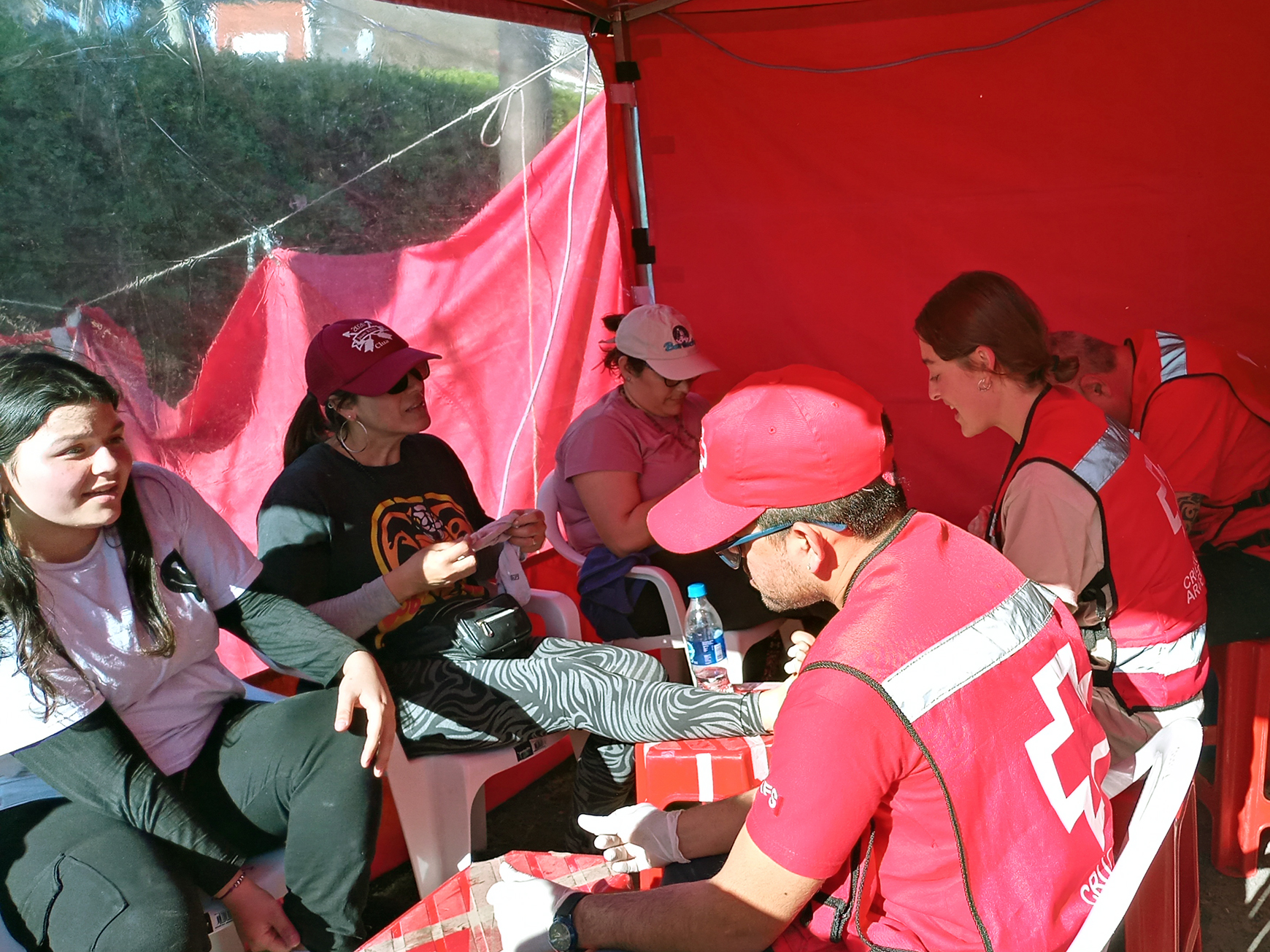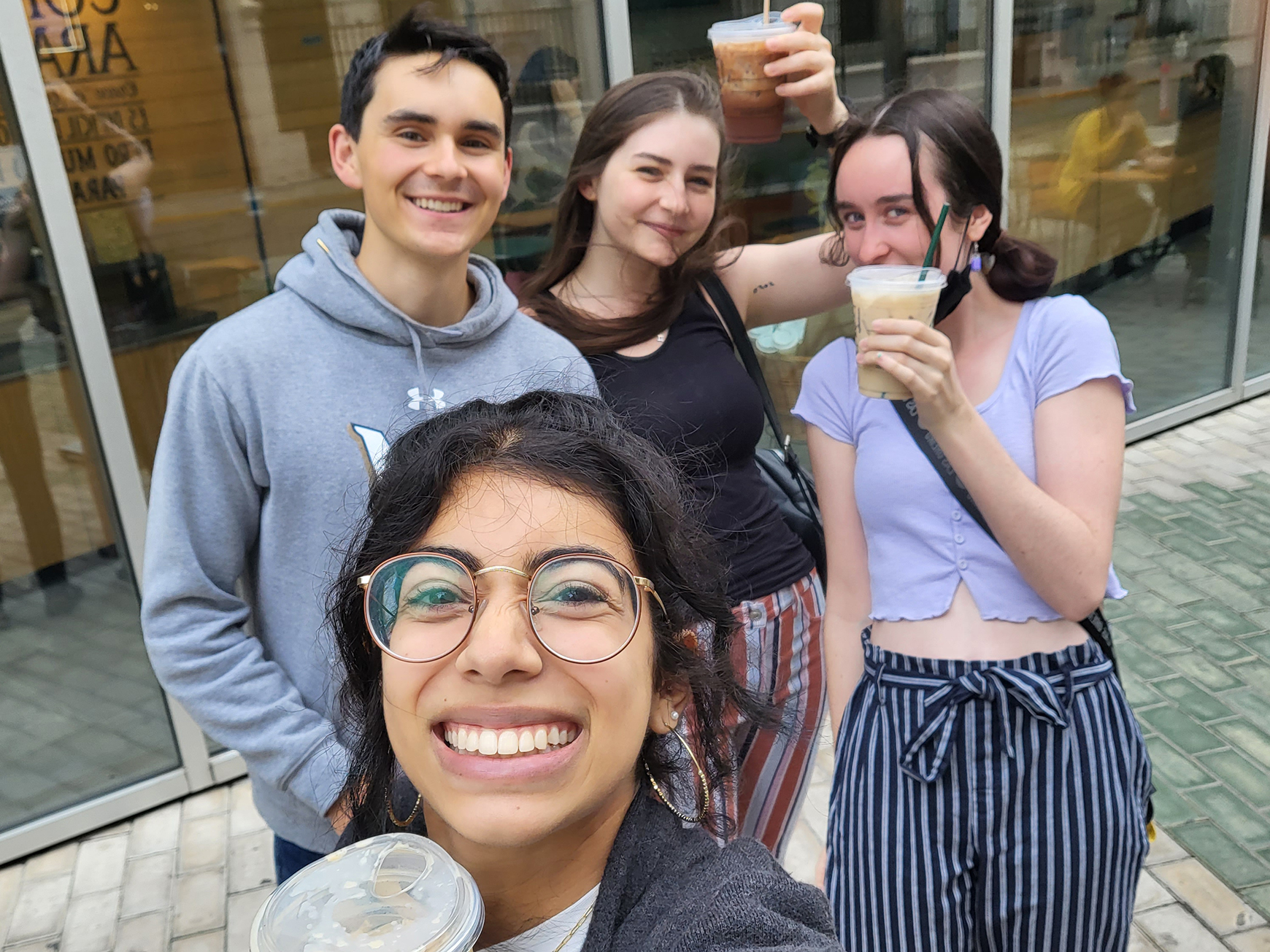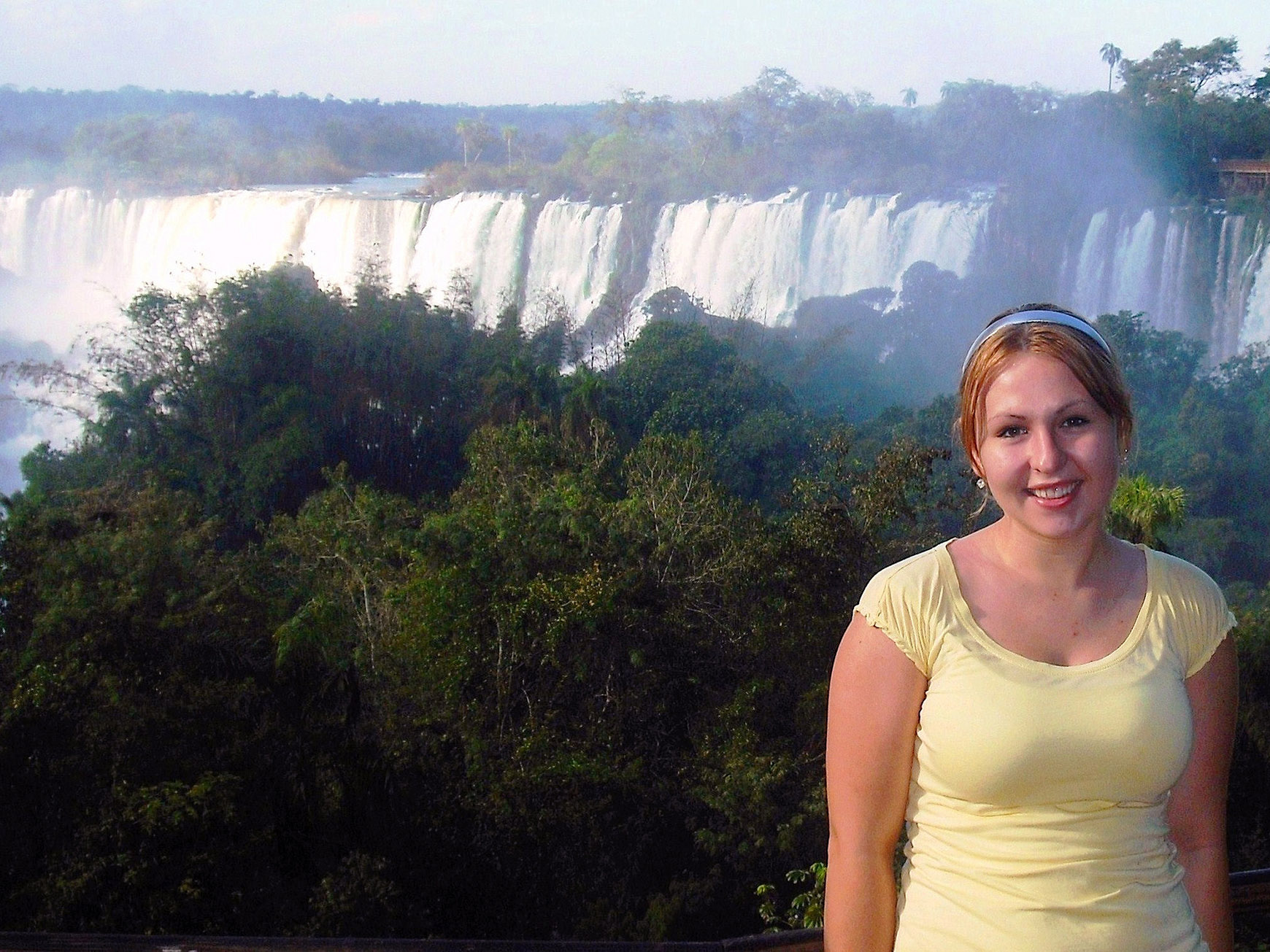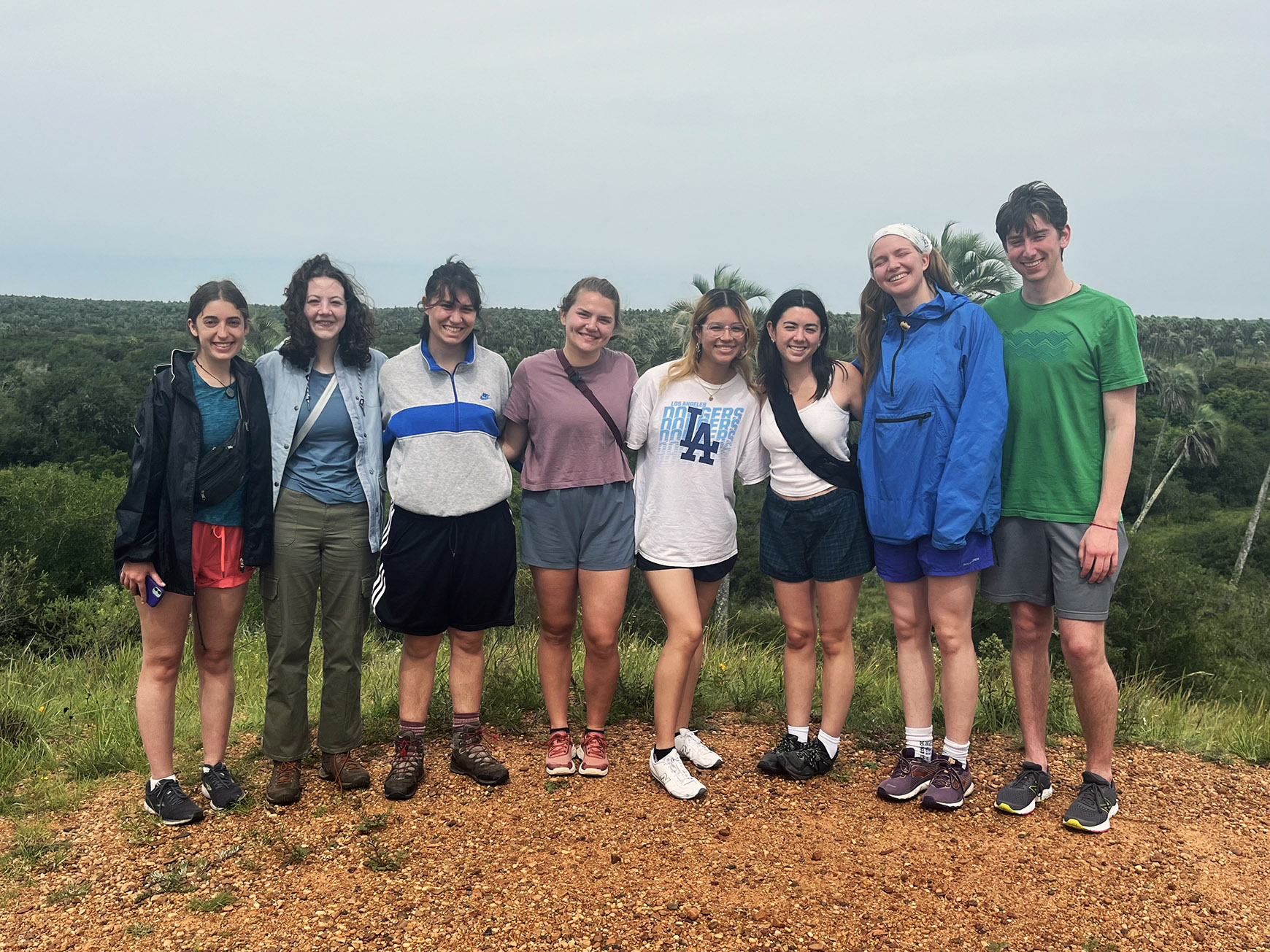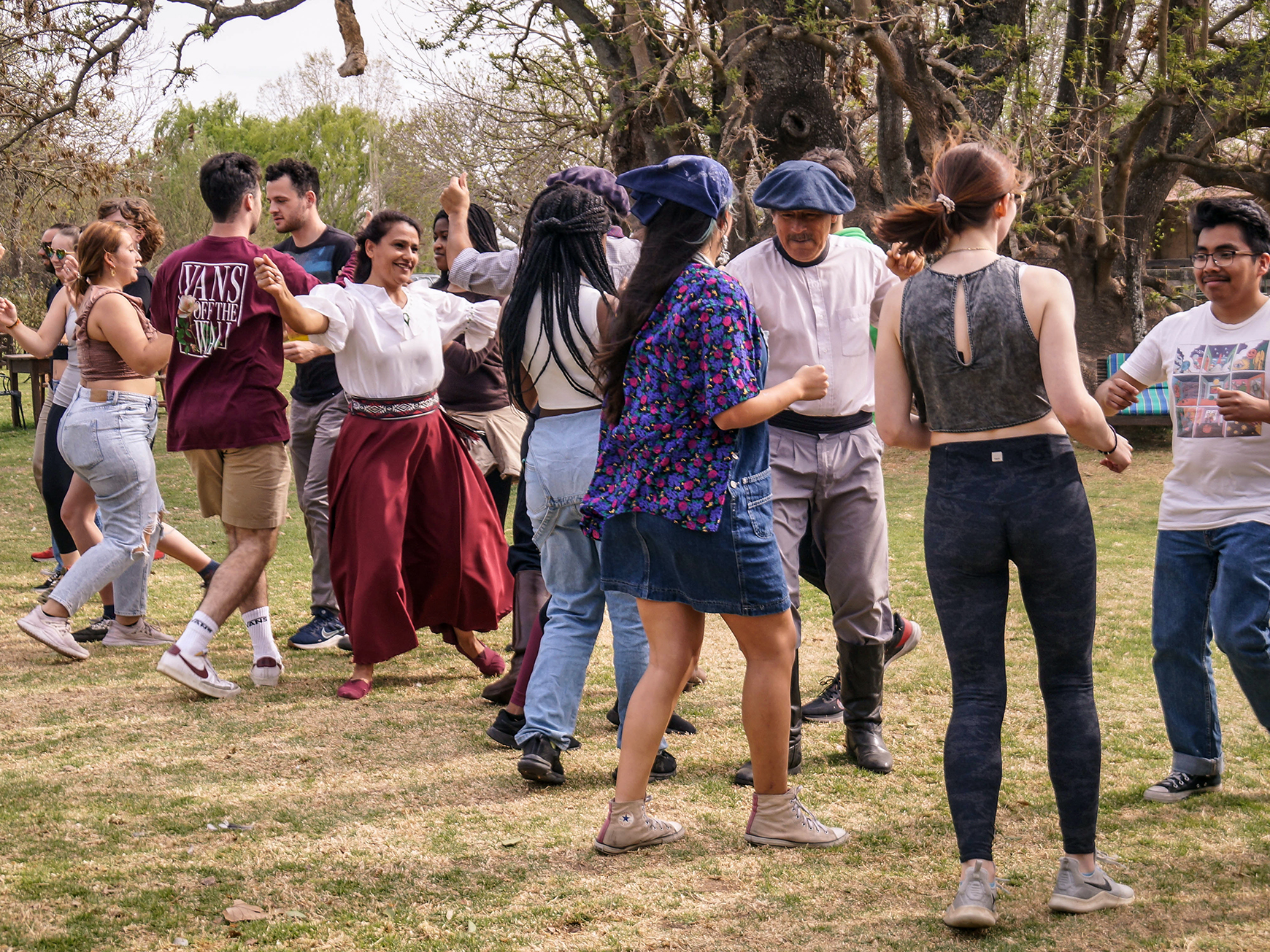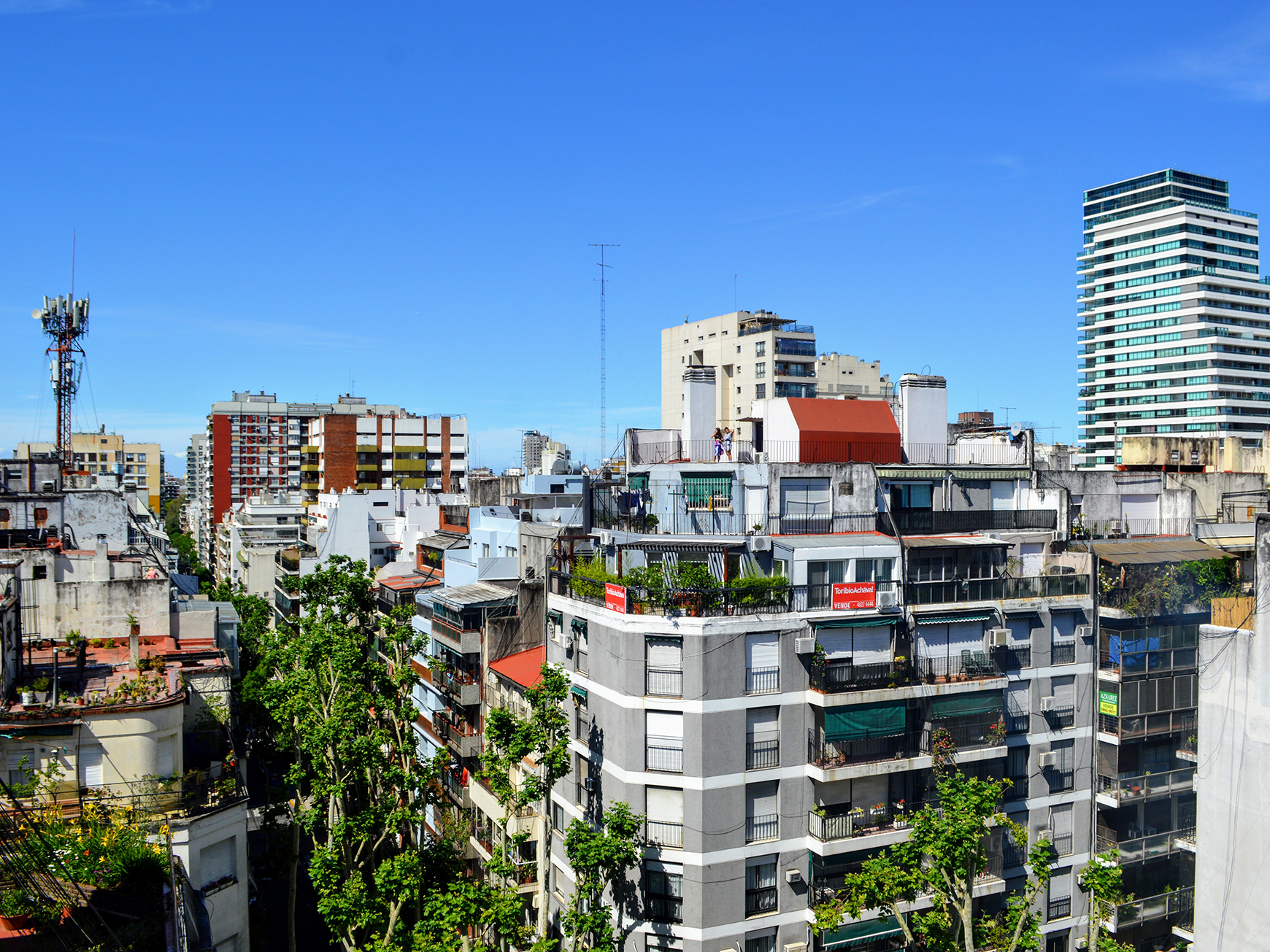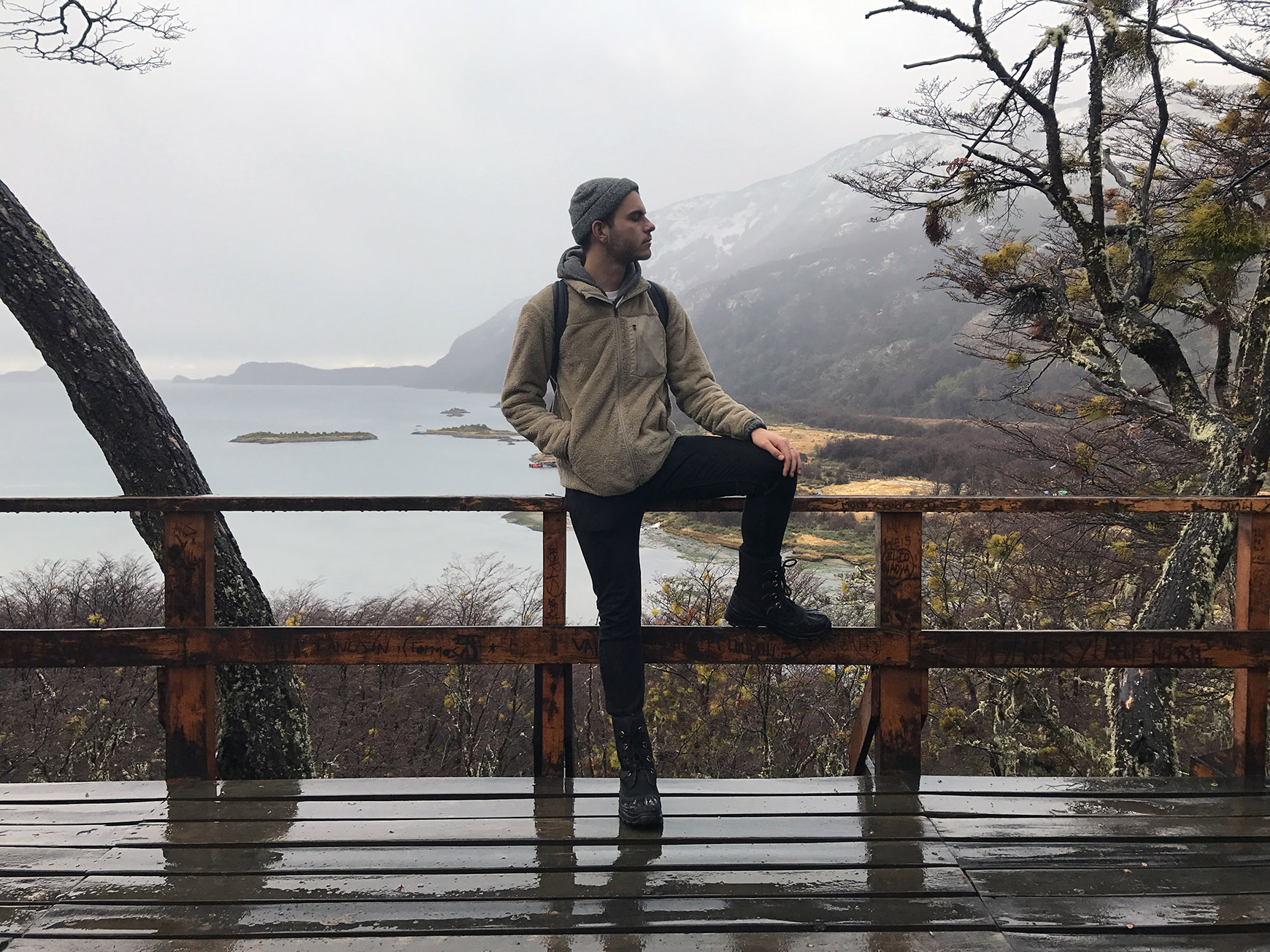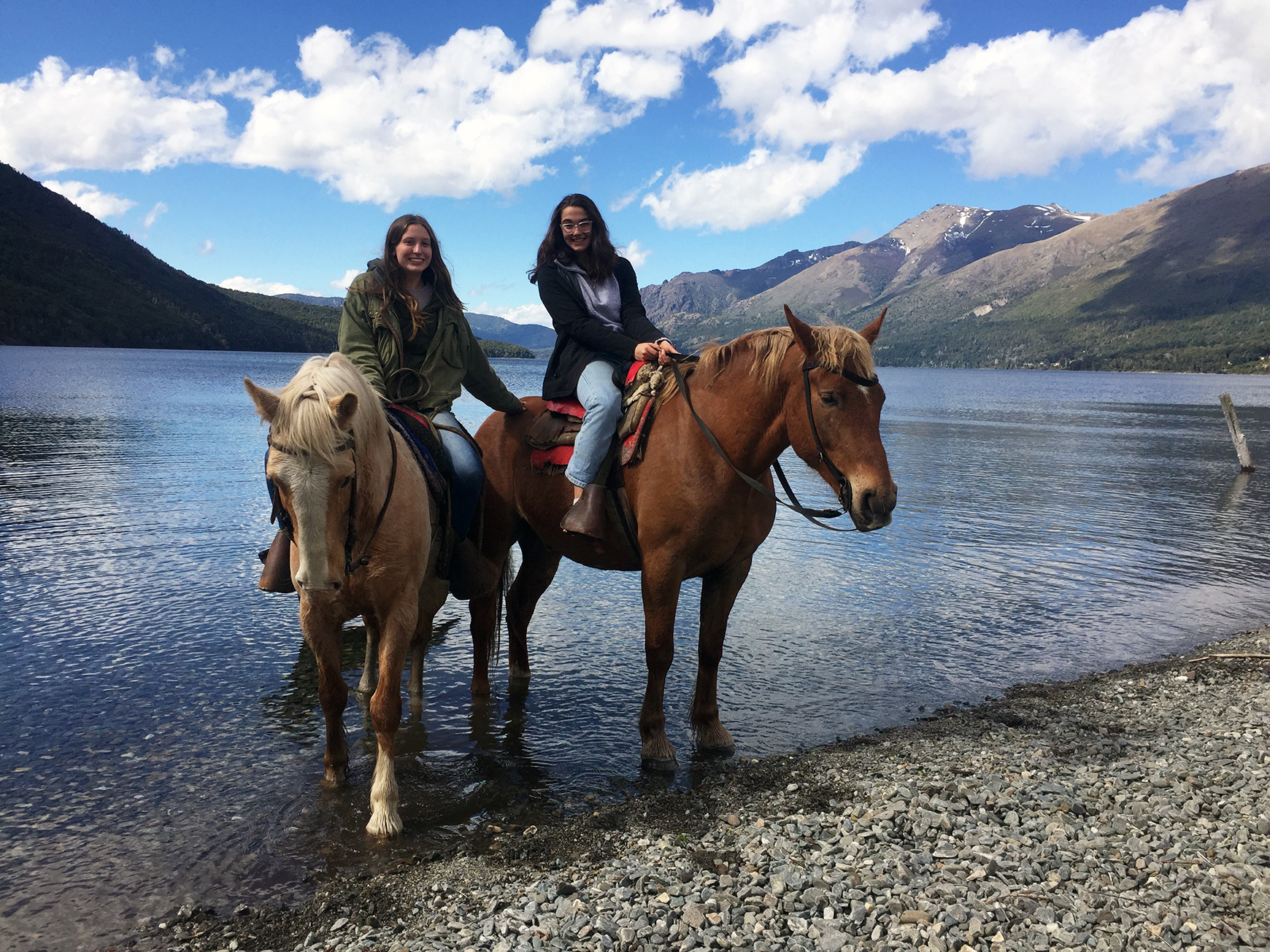Buenos Aires, Argentina
IFSA Summer Internships in Buenos Aires
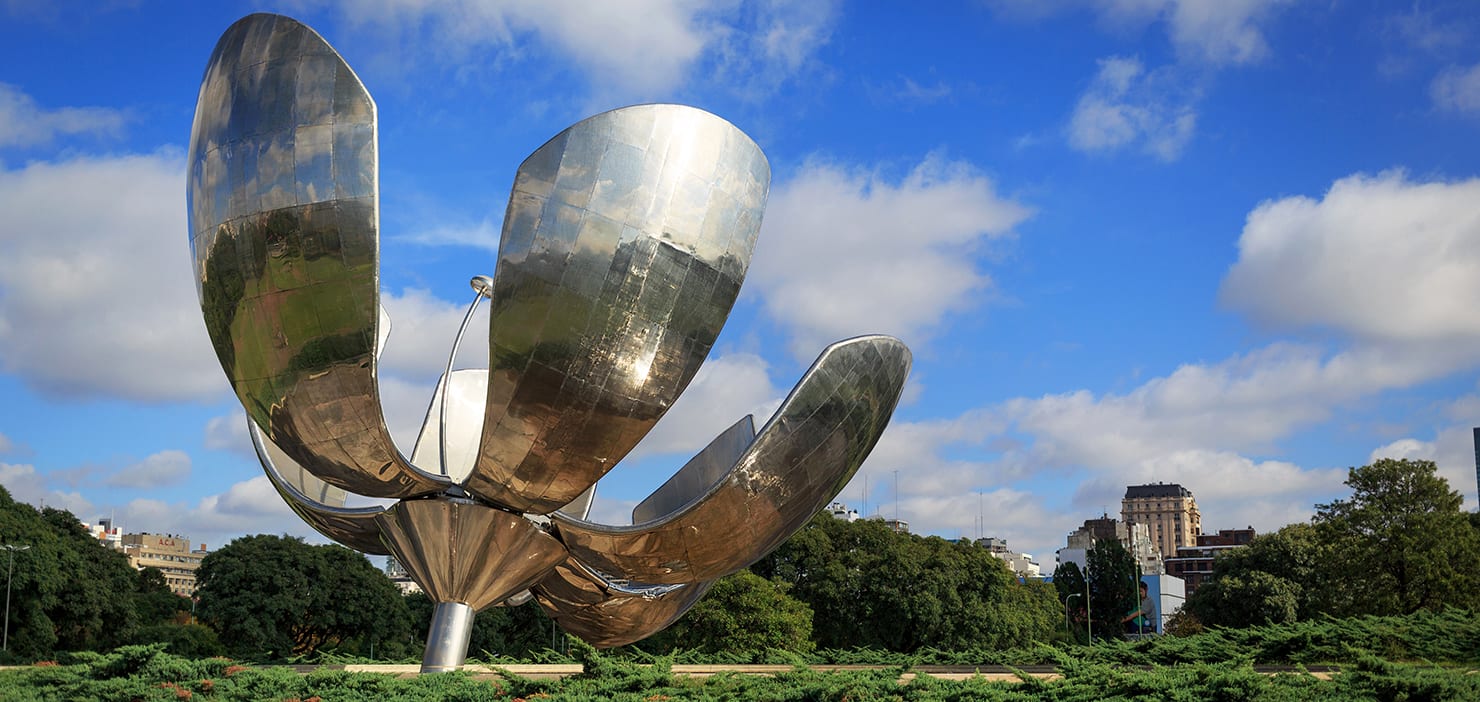

Program Overview
EIGHT WEEKS OF HANDS-ON LEARNING, STEEPED IN VIBRANT CULTURE
Buenos Aires is not only a major cultural center, it’s also one of Latin America’s most important economic hubs. Whether you’re drawn by social justice, community development, politics, business, or the arts, we’ll help you find an eight-week experience that aligns with your goals and helps your resume stand out.
Add an optional elective to earn additional credits.
This is an exclusive IFSA-Designed Program. Learn more about these affordable programs here.
Details at a Glance
Application deadline
Minimum GPA
2.00
Credit load
3–7
Housing
Apartment/Flat, Single Room Option, Homestay
Instruction language
English, Spanish
Language prerequisites
Four semesters of university-level Spanish or equivalent.
Visa required?
Not in most cases. Learn more.
Academics
Enhance your learning and develop marketable skills with an eight-week Summer Internship in Buenos Aires.
International Internship Seminar
Language of Instruction: English (seminar) | Spanish (placement)
All internships include participation in the International Internship Seminar, which covers 15 hours of online asynchronous Canvas modules to provide structured opportunities to reflect on the practical experience of the internship, learn more about your host country’s business culture, and further develop the professional skills needed for a successful transition from undergraduate coursework into a career or graduate school. Plus, you will engage with an online global cohort of IFSA internship participants, gaining exposure to business cultures around the world. (3 U.S. semester credit hours)
OPTIONAL CLASSES
You may enroll in one additional class. Not all classes may be offered in a given term. Click on each link below for a detailed class syllabus.
Advanced Spanish I
Language of Instruction: Spanish. Offered during the first four weeks of the program. (3 U.S. semester credit hours)
Advanced Spanish II
Language of Instruction: Spanish. Offered during the final four weeks of the program. (3 U.S. semester credit hours)
Argentina and Human Rights
Language of Instruction: Spanish
The class comprises theoretical and practical contents of human rights and modernity. The main objective is to cover the historization of human rights, through an analysis of modernity and capitalism. It focuses on the history of human rights in Argentina from the independence revolutionary era to the return of the democratic government in the 1980s. Finally, the class reviews the experience of human rights in Argentina through two specific ways: The 1976 military coup, the detention camps, and the transition to democracy; Through the visit to communal memory spaces related to the systemic and institutional violation of human rights during the 1976-1983 military governments. Offered during the final four weeks of the program. (3 U.S. semester credit hours)
Globalization and Economic Challenges in Latin America
Language of Instruction: English
This class examines globalization’s historic impact as economies and financial systems become more interconnected – from economic changes in Latin America in the 1960s through future economic scenarios for Argentina in the 21st century. Supporting topics ranging from climate change, commercial conflicts, and strategic trade alliances with China, the U.S., and other regions, a series of field visits allow students to gain firsthand experience with the economic challenges and opportunities globalization presents in and around Buenos Aires. Offered during the first four weeks of the program. (3 U.S. semester credit hours)
Intervention Strategies in Mental Health
Language of Instruction: English
This class explores some of the most relevant strategies of intervention in mental health. Some psychologists in Argentina have defined “mental health” as a comprehensive and inclusive state of actions capable of producing welfare rooted in the insertion of the individual in their functional milieu. We shall attempt to the clarify the following terms: strategy, intervention, and mental health. We will explore multiple mental health intervention strategies and their applications to diverse situations and populations. Identifying effective preventive and therapeutic strategies is crucial to establishing public policies which contribute to mental health at individual, family, community, and social levels. Offered during the final four weeks of the program. (3 U.S. semester credit hours)
Unheard Voices: Contemporary Literature
Language of Instruction: Spanish
This class explores the fundamental texts and authors of Chilean and Argentine literature of the 20th century. We will not only cover the canon of Latin American literature, but also rethink the canon to develop a counter-literature. To this end, we will trace the cultural tensions the texts express and to put them in relation to the correlative political conflicts. We will also consider certain themes from the 19th century to understand the way in which Argentine and Chilean authors take up, readapt and reformulate these themes, according to new questions in the 20th century. Offered during the first four weeks of the program. (3 U.S. semester credit hours)
Language Requirement
To enroll in Spanish-taught classes or an internship, you must have a specific language level. Please visit our Language Requirements page for more details. If you have questions about whether you qualify, contact your IFSA Enrollment Counselor.
INTERNSHIPS
IFSA internships include real-world work experience, along with developing intercultural skills and experiences that are key to personal, academic, and professional success. Expect to devote a total of 120 hours working with your host organization, with supervision from your seminar instructor, coordinated by on-site IFSA team members. In addition, interns complete the International Internship Seminar for 3 U.S. semester credit hours. Internships are not remunerated.
Students have interned at galleries and museums, business incubators, development agencies, religiously affiliated non-profits, marketing firms, and human rights advocacy groups in Buenos Aires.
Your goals are carefully considered, tailoring the placement process to ensure the best possible fit. Keep in mind that final placements depend on your skills, prior experience, and availability. Although every effort is made to match your placement with your preferred field or area of business, it can’t be guaranteed. Internship are conducted in Spanish.
Application. After you submit your application, resume, and IFSA Internship Interest Form, an IFSA Enrollment Counselor and an on-site IFSA Team member will work with you to identify your professional strengths, review your goals, and refine your internship interests to establish a match. From there, you’ll have an interview with your potential internship host. You will be provided with tips and resources to prepare for your interview.
Sample Placements.
The following are examples of internships IFSA students have recently completed. Placement options vary from term to term based on availability.
ORGANIZATION: This organization reconstructs the life history of the disappeared during the last dictatorship in Argentina to pass it on to their children -the grandchildren of the Grandmothers- who thus have access to an oral, written, and photographic record of their parents.
Subject Areas: Human Rights, Social Justice, Administration/Management, Women Studies, Social Movements, Latin American History, Latin American Studies. One of the many activities you might get to do at the Biographical Archive ar Compile a glossary in English on concepts related to the work of Abuelas. Transcription of interviews in Spanish for Archival purposes. Organization of data and documents. Dissemination and communication.
ORGANIZATION: A book cooperative that specializes in selling, collecting, promoting, and publishing books, zines, and more from local, small editorials. It has been open for over ten years and is a big supporter of LGBTQ rights and supporting the feminist voice. Activities include reviewing books for sale, participating in marketing and social media efforts; and for students with a very high level of Spanish, assisting with customer service. Additionally, students engage in poetry readings or book clubs, collaborate in organizing cultural activities such as the Annual Book Fair, and help with the classification and cataloging of new books.
Subject areas: Literature and Cultural Studies, Marketing and Communications, Customer Service and Public Relations, Administration/ Management, Event Planning, Digital Media and Content Creation.
ORGANIZATION: A Travesty-Trans Popular High School that offers free, quality education with a gender, cultural and sexual diversity perspective, to co-create a new world where there are no structural barriers faced by the transvestite, trans and non-binary community. They carry out outstanding territorial work and have a socio-educational trajectory of more than 10 years.
Subject areas: Gender and LGBTQ+ Studies, Human Rights, Public Policy, Education, Advocacy and Community Outreach, Psychology and mental health. You can assist in classes, according to your level of Spanish.
ORGANIZATION: The Neuroscience Lab engages in a wide range of activities aimed at advancing the field of neuroscience. These activities include cutting-edge research on neurological disorders, innovative teaching methods to educate the next generation of neuroscientists, and community outreach programs designed to raise awareness about brain health.
Subject Areas: Neuroscience Research, Cognitive neuroscience, Psychology and Behavioral Science, Public Health, Neurology. Biomedical Science.
Possible activities: Participation in projects related to behavioral studies in mice, neuroprotection line in Parkison; obtaining brain in mice for protein extraction; behavioral studies in rats, line of neuroprotection in Perinatal Asphyxia. Obtaining asphytic animals for the Perinatal Asphyxia model. Reactive area quantification using ImageJ in immunolocalization microscopy images. Participation in different projects depends on the student’s background. Participation in academic activities of the neurosciences institute (congresses, conferences, etc.).
ORGANIZATION: An institution that commits to training Health Professionals with the firm conviction of instilling the values and principles that inspire the Red Cross. They also have a group of more than 200 volunteers with whom they develop humanitarian actions together with local communities, promoting risk reduction and the comprehensive development of people, building and strengthening grassroot capacities, and promoting the inclusion and participation of all groups without distinction or discrimination.
Subject Areas: Public Health, Community Health, advocacy, Emergency Medicine and Disaster Response, Human Rights, Health Promotion and Disease Prevention, Health Administration and Management, Social Work, Mental Health Support, Global Health, Pre-Med, Training and Development for Health Professionals.
Possible activities: Completion of the volunteer training program. Completion of the First AID training program. Participation in grassroots activities or public events (Festivals, shows, marathons, sport events, pilgrimage, etc.).
Participation in different health care programs and community activities of the Red Cross (HIV testing, blood donation, mental health, homeless and older adults check-ins, among others). Support for community activities. Support in administrative tasks of the organization. Participation in the Youth group or logistics department. Social Media. Psychosocial support and human development.
APPLICATION REQUIREMENTS
Eligibility
- You must be at least 18 years of age. Students under 18 may be accepted on a case-by-case basis.
- You must be currently attending or recently graduated from a U.S. or Canadian community college, technical college, two-year college, four-year college, or four-year university.
- You must have completed at least one (1) full-time semester of study at your home institution before the beginning of the term.
Recommendation Letter
Not required. An internship site may request a reference letter before placement is finalized.
TRANSCRIPT
Upon completion of your program, IFSA will send an official Butler University transcript to your home university with your coursework converted to the U.S. semester credit hour system. You will also have access to an unofficial transcript in your IFSA Student Portal. The transcript reflects classes taken, credits attempted, and grades earned during your term abroad. This service is included in your study abroad program at no additional cost. See our Transcripts page for more information.
Excursions
Sample Activities
- Tango Class: Dive into the heart of Argentine culture with a lively tango class. Learn the steps and feel the passion of this iconic dance, guided by experienced instructors.
- Mate Workshop: Join the Mate Club and discover the traditions behind Argentina’s beloved beverage. Share stories and enjoy the unique flavors of mate in a friendly, social setting to practice your Spanish
- Bomba del Tiempo: Experience the electrifying rhythms of Bomba del Tiempo, a live percussion show that will have you dancing and feeling the beat of Buenos Aires.
- Museo River: Explore the rich history of one of Argentina’s most famous football clubs at Museo River. Discover memorabilia, trophies, and the legacy of River Plate.
Sample Excursions
- Estancia Day at Estancia La Mimosa: Spend a delightful day at Estancia La Mimosa in Exaltación de la Cruz. Enjoy traditional Argentine hospitality with activities like horseback riding, savoring a delicious asado (barbecue), and experiencing the serene countryside. Immerse yourself in the rich cultural heritage and tranquil beauty of the Argentine pampas.
- Tigre Day: Enjoy a unique day exploring the beautiful Tigre Delta. Sail through serene streams and canals in handcrafted canoes, guided by experts who will share fascinating insights about the history and lifestyle of the islanders. Experience the natural beauty and tranquility of the delta, and savor a delicious lunch amidst the lush surroundings.
Housing and Meals
Housing
Apartment/Flat, Single Room Option, HomestayMeals
Most IncludedDetails
Buenos Aires students can opt for a homestay with a local family or—for an additional fee—live in city apartments. Both options allow you to experience the lifestyle of this amazing city.
- Homestays provide opportunity for additional support and connection as you get to know your hosts.
- Apartment living allows you to soak up local culture, practice Spanish language skills, and connect with city residents. This is a great choice for adventurous or independent students.
HOMESTAYS
We place students with carefully screened families in safe neighborhoods, with up to two IFSA students per family. Many families have been hosting IFSA students for years. Often, enjoy having young people around, as their adult children have left home. You might live with a retired couple or a retired woman, perhaps with visits from young grandchildren. Your hosts might have high school-age children and a grandparent living with them. Or you might join a single mom who shares her home with her young daughter, with another adult child living nearby.
- Location. Typically in the Recoleta, Palermo, Belgrano, Villa Crespo, Almagro, and Caballito neighborhoods for easy access to public transportation, the IFSA Program Center, universities, shops and cafes.
- Supplemental fee? No.
- Commute. Whether on foot or via bus or metro, your travel time to the IFSA Program Center is more than 40 minutes. Travel times to universities are as follows:
- University of Buenos Aires, Philosophy and Letters: No more than 60 minutes
- University of Buenos Aires, Social Sciences: No more than 50 minutes
- University of Salvador: No more than 35 minutes
- Torcuato Di Tella University: No more than 60 minutes
- Living space. Only a few hosts have houses; many live in apartments. Expect to have your own bedroom, though it will likely be smaller than a typical U.S. space. Students share a bathroom with other family members. Your host will provide a desk or other suitable place to study.
- Language. Few families are fluent in English, but most can communicate. We do our best to place students without Spanish skills with English-speaking families.
- Meals. Two meals a day included. Students occasionally eat out with friends and buy snacks independently. Hosts appreciate advance notice if you will not be present for breakfast or dinner.
- Other details. Your host will give you access to laundry facilities once a week. Keep in mind that washing machines tend to have smaller capacity than in the U.S.
APARTMENTS
Live in a modern, furnished studio apartment selected by IFSA in the residential Belgrano neighborhood or the vibrant, upscale Palermo Chico neighborhood. In both cases, building residents include a mix of university students and visiting professionals. Belgrano housing is covered in your program fee; apartments in Palermo Chico include a supplemental fee to cover the higher cost.
Belgrano neighborhood. Primarily residential, quieter than downtown.
- Location: Cuba 2290
- Supplemental fee? No.
- Living space: Studios include a bedroom and bathroom with kitchen/living space. Bedding, linens, towels, and basic kitchenware provided.
- Meals: No meals provided. Students prepare or purchase their own food.
- Other details: WiFi included. Studios are cleaned weekly. 24/7 security. Staff available from 7 a.m.–midnight. Laundry facilities on-site. Shared study space.
- Commute: Metro and bus stop are two blocks away. Travel times:
- IFSA Program Center: 30 minutes by subway
- University of Buenos Aires, Philosophy and Letters: 50 minutes by bus
- University of Buenos Aires, Social Sciences: 45 minutes by bus
- University of Salvador: 30 minutes by bus
- Torcuato Di Tella University: 25 minutes on foot
- Nearby: Restaurants at vibrant Pasaje Echeverría. Bustling Barrio Chino with Asian shops and kitchens. Picturesque greenspace at Plaza Barrancas de Belgrano.
Palermo Chico neighborhood. In the northeast part of the city, upscale, popular with young professionals and students.
- Location: Cabello 3620
- Supplemental fee? Yes. Please see Dates and Fees section.
- Living space: Studios include a bedroom and bathroom with kitchen/living space. Bedding, linens, towels, and basic kitchenware provided.
- Meals: No meals provided. Students prepare or purchase their own food.
- Other details: WiFi included. 24/7 staff and security. Laundry facilities on-site.
- Commute: Catch the bus out front or around the block or walk three blocks to the metro station. Travel times are as follows:
- IFSA Program Center: 25 to 30 minutes by bus
- University of Buenos Aires, Philosophy and Letters: 35 to 45 minutes by bus
- University of Buenos Aires, Social Sciences: 30 to 40 minutes by bus
- University of Salvador: 15 to 20 minutes by bus
- Torcuato Di Tella University: 35 to 40 minutes by bus
- Nearby: Beautiful greenspaces, including Bosques de Palermo (also called Parque 3 de Febrero, bigger than Central Park in New York City). Open-air markets. Public transportation. Museum of Latin American Art. Evita Museum. Embassies and historic residences.
Dates and Fees
Get Started
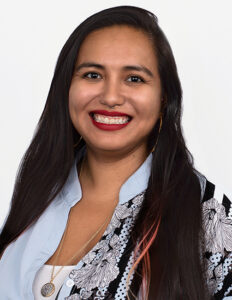
Selena Rincon
Senior Enrollment Counselor
